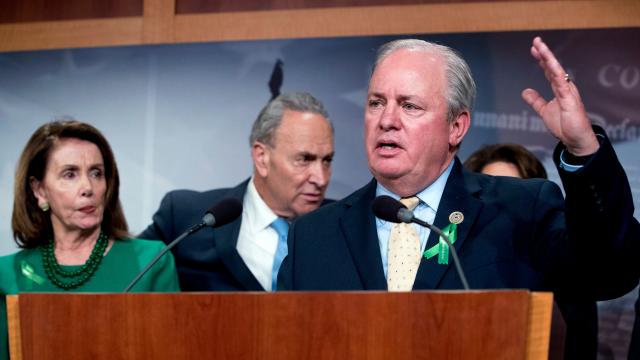Democrats in the U.S. House of Representatives made good on a campaign promise on Wednesday, passing legislation that would effectively reinstate in its entirety the 2015 Open Internet Order — rules that, for a brief time, ensured net neutrality was the law of the land.
The bill passed in a 232-190 vote, with only one Republican voting in favour of the legislation.
The Save the Internet Act, introduced by Congressman Michael Doyle Jr. last month, would codify into law consumer protections that existed prior to the Federal Communications Commission’s December 2017 repeal of its net neutrality rules.
The bill prohibits broadband-access providers such as AT&T and Comcast from blocking or slowing internet content or offering select businesses so-called “fast lanes.”
The bill would restore the FCC’s authority to govern internet providers under Title II of the Communications Act, which is the GOP’s primary objection to the bill. Democrats argue that without Title II-based rules, there would be no “cop on the beat” to ensure that the rules are enforced.
“This legislation not only protects consumers from large corporations, but it also strengthens our economy by promoting innovation and small businesses,” said Doyle. “Net neutrality ensures that any business, no matter how small, gets the same internet at the same speeds as giant corporate interests.”
“That’s only fair,” he said. “There should not be favourites.”
Republicans such as Congressman Greg Walden, the bill’s most vocal opponent, have attempted to cast net neutrality as a “heavy-handed” approach to regulation and—hysterically — as a “government takeover of the internet.”
The criticisms, however, belie the fact that broadband providers are not themselves “the internet,” and, in fact, the bill grants the government no authority to control what’s on it.
Walden and other detractors have also falsely claimed—even as recently as this morning—that the bill would lay the ground for future taxation of broadband access, even though doing so would be illegal. Under the Internet Tax Freedom Act of 1998, federal, state, and local governments are prohibited from taxing internet access.
Promises by the FCC’s chairman, Ajit Pai, that repealing the net neutrality rules would spur a new era of investment in the nation’s broadband infrastructure have fallen flat. Since the repeal, network laid off thousands of workers.
In an era in which Americans seem sharply divided on nearly every issue of political consequence, net neutrality is a unifying issue. As oft-cited by Democratic lawmakers, some 86 per cent of Americans oppose the Trump administration’s decision to dismantle the Obama-era rules, including 82 per cent of Republicans, according to a 2018 survey by the Program for Public Consultation at the University of Maryland.
I’ve been banging this drum — but it is worth stating that 92% of Americans want new privacy laws, and over 80% want Net Neutrality laws — Congress’s inability to do either is “an oppression of the supermajority”
— Tim Wu (@superwuster) April 10, 2019
But as the ability of net neutrality to drive voters to the ballot box on Election Day remains purely hypothetical, Republicans have largely ignored the will of constituents, opting instead to carry water for some of the country’s most widely despised corporations.
The future of the Save the Internet Act remains up in the air, as Majority Leader Mitch McConnell has promised the bill will be “dead on arrival in the Senate.”
Last year, three Republican senators — Susan Collins of Maine, John Kennedy of Louisiana, and Lisa Murkowski of Alaska — broke ranks and supported a resolution to reinstate the 2015 rules.
The White House on Monday threatened to veto the bill. Even with the aid of the Senate’s two Independents, Democrats would need to wrangle an additional 10 Republican votes to override a veto.
